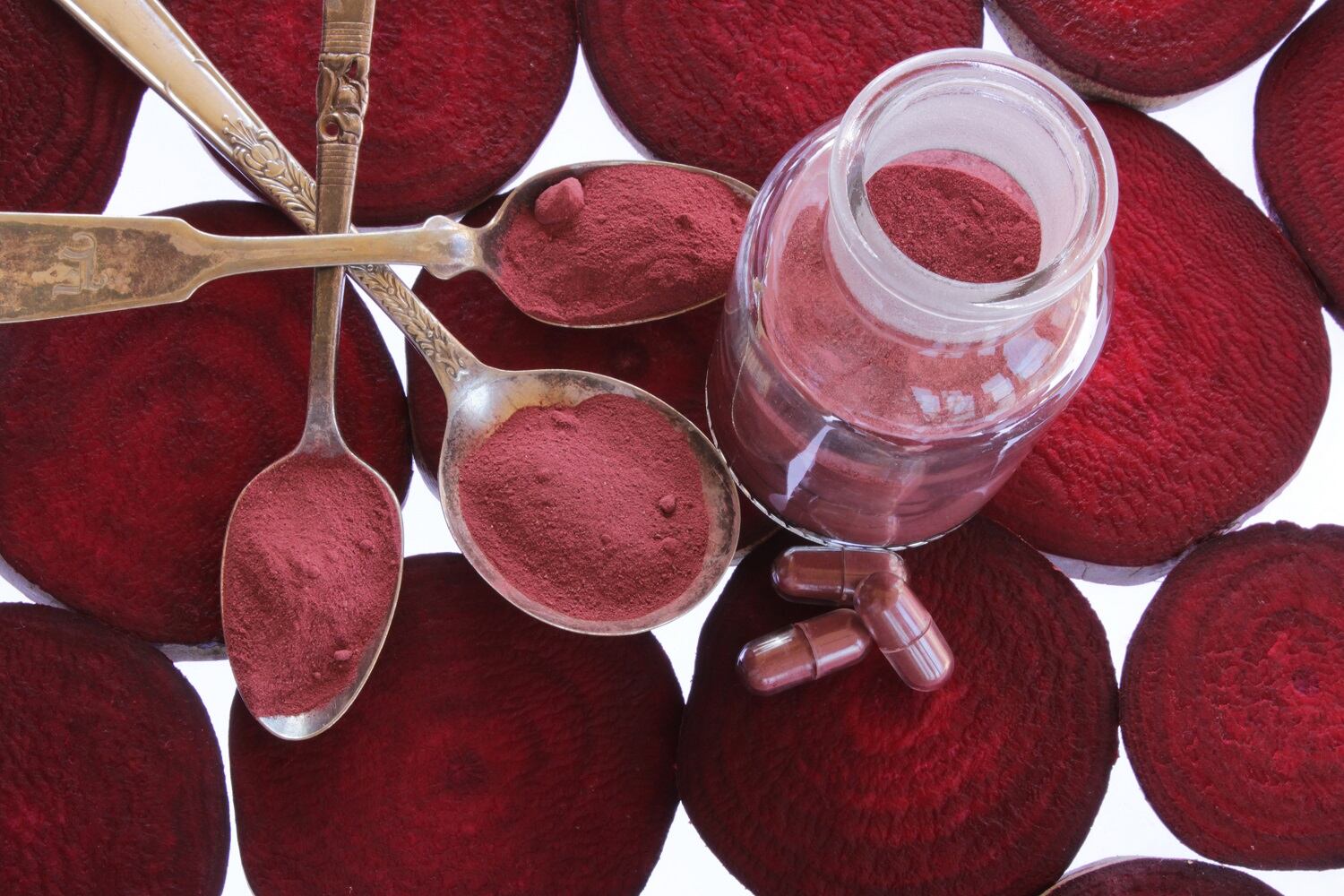Recently, beetroot (Beta vulgaris L.) supplement consumption has increased owing to its high nutritional value and it antibacterial, anti-inflammatory, antipyretic, antiproliferative, choleretic, diuretic, anticancer, and anti-diabetic properties.
The health-promoting effects of beetroot are impacted by the dose of bioactive substances (mainly plant pigments called betalains and nitrates) as well as physical parameters of the supplement - ie. hardness, abrasion, disintegration rate - which influence the release of the active substances. The uniformity of the weight of the dosage units is responsible for the reproducibility of the beneficial effect.
Contamination or adulteration reduces supplements’ quality and safety of use as the presence of undeclared or unauthorised substances may result in an unknown effect on the body or even health damage.
All this is particularly important in beetroot-based dietary supplements as they have the propensity to induce hypotension (in people with low blood pressure or due to synergistic interaction with antihypertensive drugs) or exacerbate gout and kidney stones symptoms (owing to the content of oxalic acid).
The current research therefore aimed to investigate the physical parameters (average weight, disintegration time, friability, hardness, size, and shape) of commercially available beetroot-based dietary supplements on the Polish market, as well as their zinc, and iron content.
The authors note that while the European Food Safety Authority (EFSA) provides scientific advice on foods and food supplements in Europe and the European Medicines Agency monitors medicinal products, the state of plant-based dietary supplements is unregulated in that there are no requirements for product standardisation in terms of specific substances or guidelines related to the formulation or the content of additional substances. In contrast, in the United States, The Food and Drug Administration (FDA) is responsible for controlling food safety, dietary supplements, prescription and over-the-counter pharmaceutical drugs, and cosmetics.
Therefore, in the current study, the analyses of physical parameters were performed following the The United States Pharmacopoeia (USP) requirements. The obtained results were compared with manufacturers’ declarations and the USP guidelines.
The researchers postulated that the results would verify whether there is a need to introduce to the European market regulations similar to the USP guidelines.
Thirty-one commercially available supplements (from 23 different manufacturers) made of beetroot or beetroot preserves were obtained from various drugstores or online shops on the Polish market.
The results
In two of the tested products (both in the form of capsules) the net weight of three samples differed from the average net weight by more than 10%. Nonetheless, more than 90% of the tested supplements demonstrated suitable uniformity of weight according to the USP.
The team found statistically significant differences between the average weight and the declared weight for 17 of the analysed products. For three of them the average weight was significantly lower, while for 14 it was higher than declared.
In the disintegration test, the researchers found the average disintegration time did not vary substantially between different batches apart from one supplement in which it differed two-fold (23 and 44 min).
Seven of the dietary supplements (six in the form of tablets, one in the form capsules) did not pass the pharmacopeia requirements of disintegration time - after 30 min of the disintegration more than two dosage units did not disintegrate completely. In extreme cases, disintegration took 40 minutes to an hour.
The researchers note: "An adequate tablet strength should provide fracture toughness to permit dosing and, at the same time, adequate disintegration upon digestion. Unfortunately, inappropriate manufacturing of dosage form (e.g., high compression force, unsuitable excipients) may inhibit both the disintegration of dosage form and dissolution of active substances. In such a case, the digestive processes may not be sufficient to provide the liberation of the components for absorption."
Based on the obtained results, the researchers conclude there is a potential risk that six of the tested supplements would not completely disintegrate after consumption, which may result in the failure of both the total dose release and the absorption.
In the size and shape analysis, the researchers found one supplement did not meet the FDA recommendations because it had a diameter larger than 22 mm. The authors note that numerous scientific reports indicate that tablets exceeding 8 mm (in any dimension) are not preferred by patients due to discomfort during ingestion. According to this criterion, they conclude that 13 supplements tested might be inconvenient for patients to swallow.
Eight dietary supplements were enriched with iron compounds (iron(II) gluconate or iron(II) fumarate. Five of them displayed statistically significant differences in this content in comparison with manufacturers’ declarations. In fact, iron levels ranged between 84.91 and 140.69% of producers’ declarations. Moreover, all the analysed pairs of products displayed statistically significant differences between batches.
The analysis also revealed the iron content in 56% of the unenriched supplements was higher than the content of dried beetroot (0.76 mg/100 g dry weight). In the case of zinc, 71% of all supplements had a higher content of this element than the dried beetroot (0.29 mg/100 g dry weight).
The authors conclude there is a need to control beetroot-based dietary supplements, as they show considerable variation in physical parameters between batches and some of them may pose risks to the consumer due to the size and shape of the dose, non-degradation, and high hardness or friability.
They add: "It can be concluded from the producer’s declaration that most products contain a negligible amount of processed beetroot (usually less than 5 g of fresh vegetables). Only supplements enriched with iron deserve attention, as they can be important sources of this ingredient compared to other products.
"In summary, similar to the USP requirements should be considered on the European market of dietary supplements, and control of the formulation quality should be provided to ensure safety for consumers. Moreover, due to the increasing number of adulterated dietary supplements, there is a need for constant monitoring of their chemical composition and safety. Possible contamination above the permissible limits or adulteration translates into an increased health hazard for the consumer. Therefore, stricter controls before placing them on the market should be considered."
Determination of the other beetroot phytochemicals content will be the subject of further research.
Nutrients: Foods
Brzezińska, J., Szewczyk, A., Brzezicha, J., Prokopowicz, M., and Grembecka, M.
"Evaluation of Physicochemical Properties of Beetroot-Based Dietary Supplements"





